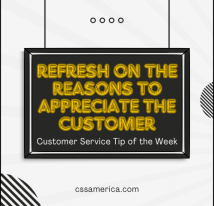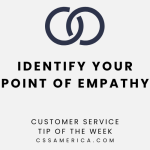
After providing the final research report to a client recently, even though the report provided tremendous detail and a 10-page Executive Summary, the client asked that I cull down the key takeaways to a few bullet points. As I glanced back through the report, there was one exceptionally interesting finding.
As background, this research was for an event that takes place annually. One of our approaches to analysis is to look at the characteristics of last year’s respondents and their individual responses to the survey, then identify which of those attributes strongly correlated to renewal and attendance at this year’s event.
One of the strongest factors impacting renewal to this year’s event was Event-related Communications. Last year’s event was negatively impacted by the weather, and it was interesting that many of the respondents felt better about the overall experience if they felt better about Event-related Communications, and they felt worse about the overall experience if they were not satisfied with the Event-related Communications.
Essentially, when an organization has challenges, a particular event as issues, a product or service has poor quality or lacks timeliness, the importance of effective communication ramps up dramatically.
When things are going bad, it’s better to overcommunicate than under communicate. It’s better to be more proactive and provide information above and beyond about what the issues are, what the resolutions may be, and what timeframes are expected.
It’s not just a good thing to keep customers in the loop, but when significant issues arise, those communications are often the difference between a renewal and a cancellation, the difference between keeping a customer and sending them to a competitor, the difference between a repurchase and lost business.
When you look at your ongoing customer Touch Point Strategies, make sure that there are specific strategies in place that enhance customer communications when the experience goes bad.
Know what to do during a bad experience.
Signup for FREE Tips! Contact Us More Resources for You Visit Our Home Page























